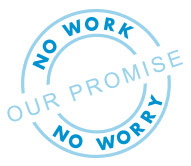Some families keep their nanny for years, while others go through a string of nannys, leaving children confused. It’s a lot of work finding your dream nanny, but the hardest part is after the hire, developing a strong ongoing relationship. Think about your own work environment and how your boss treats you. Realize that she’s a professional in her own right.
1. Does she know you appreciate her? Express your appreciation to your nanny out loud frequently, and give her respect and support, especially in front of the children. Don’t allow your children to be disrespectful to her and never speak unkindly to her. Zoe from Unnecessary Wisdom tells the story of her own part time nanny job and a boss who hosted an executive company Christmas party. She invited Zoe to attend and hired a sitter for the event. She raised a toast and asked her husband and Zoe to stand, announcing: “To my husband and Zoe – the two most important people in my life. Without you, I wouldn’t be able to do what I do.” Zoe recounts her undying devotion to this family for years afterwards.

2. Are you really Communicating? Take time to establish regular communication routines with your nanny, daily, weekly, monthly and annually. Take 15 minutes weekly to review her plans and schedule for the following week. Share developmental goals, ideas for the household, your frustrations, and listen to hers as well. Initiate a Nanny Log and ask her to make notes daily and actually read them, occasionally leaving notes of your own or give written praise for a job well done.
3. How do you resolve conflicts? Think before you speak. Focus on creating a win-win solution, not on being right. How can she effectively play with your children, dance with them, sing to them, cuddle with them, put them to sleep if you yell at her or give her the cold shoulder? The fingerprints on the microwave may be bothering you. You know it’s silly and not worth mentioning, because you’re OCD, and you don’t want to rock the boat because she’s home with your baby all day. She already knows something is wrong, but can’t get you to tell her. The baby knows too. It could be something more serious, and I know it’s hard for you to bring it up, but after the first time, it gets easier. The process of resolving conflict will actually bond you both closer together when done quickly, before it festers. Take care of it the same day it occurs, or as soon as possible.
4. Are you micromanaging? If you’ve done your homework and found a nanny you can trust, then trust her. It’s not fun being under a critical eye. A good parent draws forth the qualities they envision for their child. Likewise, your faith in your nanny, knowing she’ll do well, creates confidence and a desire to please you even more.
5. Are you adding more duties and hours? Don’t keep adding more chores or hours without additional compensation.
6. Is she bored? Encourage her to get out and go on playdates, trips to the zoo, the park, the Children’s Museum or the Butterfly Wonderland. Being a nanny is isolating. The interaction and stimulation will benefit your child.
7. Is your pay and benefits package competitive? If you’re able, are you giving her raises when you get a raise at your job?
Beth




